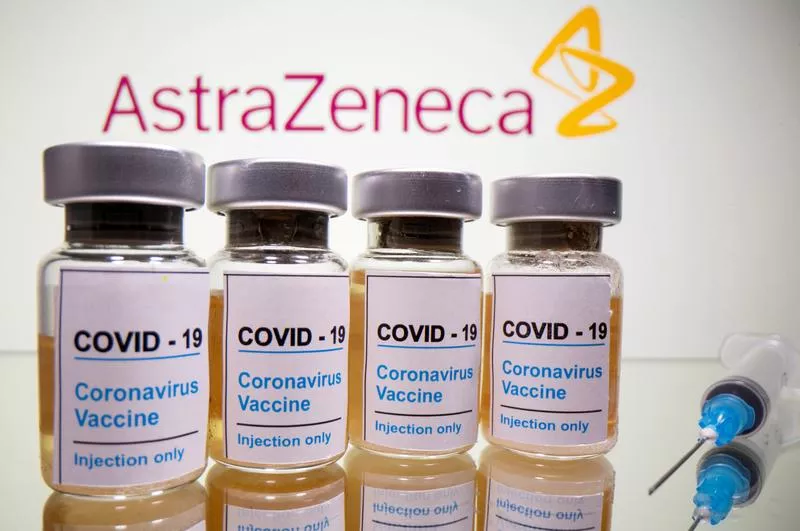Explainer: How worried should we be about reports of blood clots and AstraZeneca's vaccine?
European Medicines Agency says it has so far found no causal link between the vaccine and the incidents
FRANKFURT/PARIS:Europe’s drug watchdog is reviewing a small number of reports of bleeding, blood clots and low platelet counts in people who have received AstraZeneca’s coronavirus vaccine.
The European Medicines Agency (EMA) has said it has so far found no causal link between the vaccine and the incidents. The World Health Organisation has also said there was no proven link and people should not panic.
At least 13 EU member states including Germany, France, Italy have suspended use of the shot pending the outcome of EMA’s probe.
Here’s what we know so far:
What has happened?
More than 45 million Covid shots by all manufacturers have been administered across the EU and the European Economic Area since vaccinations started almost three months ago.
The EMA is investigating reports of 30 cases of unusual blood disorders out of 5 million people who got the AstraZeneca vaccine in the EU.
Read more: Benefits outweigh the risks of AstraZeneca Covid shot as review continues: WHO
The EMA’s focus and primary concern is on cases of blood clots in the head, a rare condition that’s difficult to treat called cerebral venous thrombosis (CVT).
In Germany, seven people aged 20 to 50 have been diagnosed with CVT up to 16 days after vaccination as per Monday, according to the national vaccine authority Paul Ehrlich Institute (PEI). Based on the known rate of CVT in the general population, the PEI would have expected one case in 1.6 million.
What have other countries and AstraZeneca said?
Britain has administered more than 11 million doses of the AstraZeneca vaccine and reports of blood clots were no greater than would have occurred naturally. The UK’s medicine regulator has urged Britons to keep on getting their vaccines, including the AstraZeneca shot.
Canada has said health experts are sure all Covid-19 vaccines being administered in the country are safe, including AstraZeneca’s.
AstraZeneca said on Sunday a review of safety data of more than 17 million people vaccinated in the United Kingdom and European Union with its vaccine had shown no evidence of an increased risk of blood clots.
What is the EMA investigating?
EMA investigators are checking if the frequency of incidences is higher in the vaccinated population than normal background rates.
The normal frequency is drawn from public health statistics or insurance records. This would be combined with a medical analysis of each case and insight from scientific literature.
EMA’s head of safety monitoring, Peter Arlett, added the rarity of CVT meant the watchdog would have to rely more heavily on case-by-case analysis rather than on the sparse statistical data.
A spokeswomen for Germany’s vaccine authority, which is part of the investigation, said EMA would not rule on causality.
Instead, EMA will assess the likelihood of an increased risk of the condition and weigh that against the benefits of fighting Covid-19 and providing relief for health systems.
For example, the vaccines developed by Pfizer and Moderna have been linked with increased risk of anaphylaxis, but they are still recommended because benefits outweigh the risks of the side effect, which can be treated.
The regulator has said it remains for now “firmly convinced” that the product’s benefit outweighs any risks.
What did the clinical trials show?
AstraZeneca and European regulators have said that concerns about blood coagulation disorders did not emerge during human trials.
Safety monitoring after approval is key because extremely rare side-effects, or those affecting only a small subset of the population, are near impossible to identify during clinical trials, according to PEI.
Are there precedents of vaccine safety scares?
In Japan, a governmental recommendation for use of human papillomavirus (HPV) vaccine to prevent cervical cancer has been suspended since June 2013, due to media reports of an alleged pain syndrome. This has drawn criticism from the WHO.
A study published in The Lancet Public Health last year concluded a continued suspension would lead to thousands of cancer deaths over the next decades.
In Ukraine here, deep mistrust of vaccines has allowed measles to grow into an epidemic. Vaccine hesitancy there is rooted in corruption and mistrust of authority but also in a temporary government suspension in 2008, when a 17-year-old boy died shortly after receiving a measles-rubella vaccine.


COMMENTS
Comments are moderated and generally will be posted if they are on-topic and not abusive.
For more information, please see our Comments FAQ